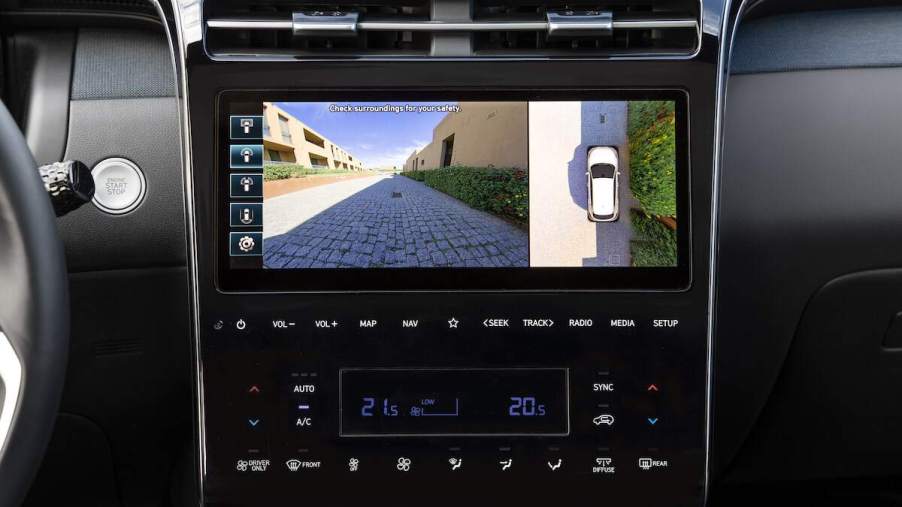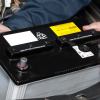
Hyundai Upgraded 1 Gimmicky Smart Feature That Makes It Much More Helpful
Though consumers remain wary of fully autonomous driving, carmakers like Hyundai continue pushing the limits to offer more smart features. Driver-assistance systems can enhance safety, but some seem like party tricks to sell more cars. However, Hyundai upgraded a gimmicky smart feature, making it more helpful to drivers.
Hyundai’s original Remote Smart Parking Assist is smart but impractical
Hyundai’s Remote Smart Parking Assist (RSPA) helps drivers maneuver into tight-fitting parking spots.
RSPA uses sensors attached to the vehicle to measure the parking space and then give the driver input on speed, direction, acceleration, and steering. Also, automatic braking will activate if the system detects an object in the path of the moving vehicle. Hyundai’s RSPA is not fully autonomous but rather a semiautomatic feature that provides prompts on the navigation screen to assist the driver with parking.
The smart feature can be used when the driver is still in the car by pushing the RSPA button and following the prompts or outside the vehicle using the key fob to start remote self-parking.
However, the feature isn’t practical for daily use. For example, during our test drive of a 2021 Hyundai Sonata with RSPA, the remote mode took 30 seconds to activate, proving burdensome and unrealistic in busy parking lots. It also allowed only forward and backward motion, making RSPA useless for parallel parking and other situations requiring more complex maneuvering.
Hyundai upgraded Remote Smart Parking Assist to RSPA 2
Hyundai rolled out RSPA 2, also known as Premium RSPA. However, only two models have it so far: the Ioniq 6 Limited and the Nexo Limited. The upgraded version includes parallel parking and diagonal parking.
“This enables your Hyundai to park itself, even when you’re not inside. It can parallel park and enter into and exit out of parking space with a press and hold of your Smart Key button,” Hyundai explains.
The advanced system uses ultrasonic sensors and surround-view cameras. RSPA 2 works the same way as the original system but allows parking in more environments. The system can detect parking lines and spaces, assisting with perpendicular, parallel, and diagonal parking.
Hyundai’s e-Corner system adds another dimension to RSPA 2, allowing the vehicle’s wheels to turn 90 degrees — making tight 180-degree turns and sliding into parking spaces seamless.
The improved image recognition enhances parking performance, making RSPA 2 helpful, especially for drivers who haven’t mastered parallel parking.
What Hyundai models have RSPA?
Smart parking features are usually reserved for luxury vehicles. Although Hyundai makes mainstream cars, it’s paving the way for self-parking systems with advanced technology. Here are the 2023 Hyundai models with the original RSPA:
- Sonata Limited
- Sonata Hybrid Limited
- Tucson Limited
- Tucson Hybrid Limited
- Tucson Plug-in Hybrid Limited
- Santa Fe Limited
- Santa Fe Calligraphy
- Palisade Calligraphy
- Ioniq 5 Limited
And, as previously mentioned, the Hyundai models with RSPA 2 are the Ioniq 6 Limited and the Nexo Limited.
“Plenty of drivers feel like they’re expert parkers and don’t need an electronic surrogate to do the job,” Autotrader points out. “But in reality, given the right traffic conditions, every driver can benefit from a well-executed active parking assist system like Hyundai RSPA.”


